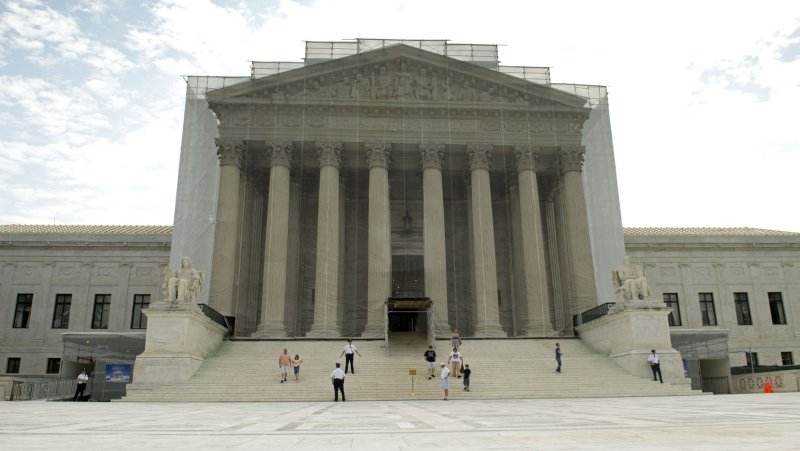The Supreme Court is seen on June 24, 2013 in Washington, D.C. UPI/Keivn Dietsch |
License Photo
WASHINGTON, June 24 (UPI) -- The U.S. Supreme Court ruled 7-1 Monday to narrow the use of affirmative action by state schools, but fell short of striking down such policies altogether.
Justice Elena Kagan, who was U.S. solicitor general when the Texas dispute was in the lower courts, took no part in the case. Justice Anthony Kennedy wrote the majority opinion.
More than three-fourths of freshmen enroll at the University of Texas at Austin under a state law that gives automatic admission to students in the top 10 percent of their high school classes. For the rest, the school considers a number of factors, including race.
Two white students denied UT admission under the policy challenged it in federal court.
A three-judge appellate panel upheld the admissions policy, and the full 5th U.S. Circuit Court of Appeals, one of the most conservative in the country, refused to rehear the case by a vote of 9-7.
The majority said UT's admissions program was "narrowly tailored," as required by the 2003 Supreme Court precedent in Grutter vs. Bollinger, which approved affirmative action at the University of Michigan Law School.
But the Supreme Court threw out the appeals court ruling in the Texas case, saying it didn't adhere to Grutter. Kennedy said, "The reviewing court must ultimately be satisfied that no workable race-neutral alternatives would produce the educational benefits of diversity."
Justice Ruth Bader Ginsburg was the sole dissenter.
"The court rightly declines to cast off the equal protection framework settled in Grutter," she said. "Yet it
stops short of reaching the conclusion that framework warrants. Instead, the [Supreme] Court vacates the Court of Appeals' judgment and remands [sends it back] ... to 'assess whether the university has offered sufficient evidence [to] prove that its admissions program is narrowly tailored to obtain the educational benefits of diversity.'
"As I see it," Ginsburg added, "the court of appeals has already completed that inquiry, and its judgment trained on this court's [precedents] merits our approbation."















